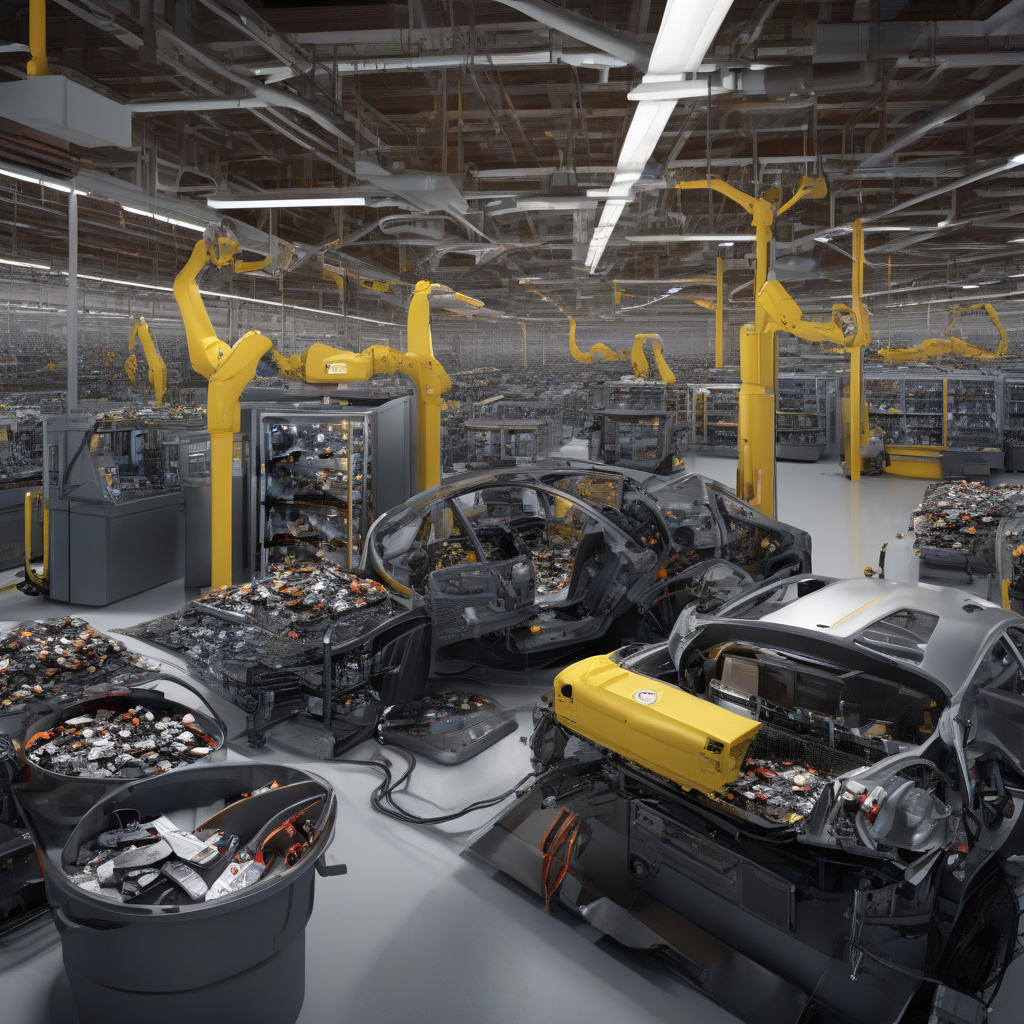US Recycling Tech Gives Dead EV Batteries New Life with 92% Metal Recovery
A new approach developed by researchers at the Worcester Polytechnic Institute (WPI) in the US is revolutionizing the way we perceive dead electric vehicle (EV) batteries. Traditionally, these batteries, once they reach the end of their lifespan, are disposed of in landfills, posing a significant environmental hazard due to the toxic metals they contain. However, the innovative technology developed at WPI offers a sustainable solution by effectively recycling dead EV batteries and recovering up to 92% of the metals contained within them.
The process begins by collecting the spent batteries and dismantling them to extract the valuable metals they hold, such as cobalt, nickel, and lithium. These metals are then purified and reintroduced into the production cycle, reducing the need for mining new resources and lowering the environmental impact associated with battery production. This closed-loop approach not only conserves valuable resources but also minimizes the carbon footprint of manufacturing new batteries, making it a win-win solution for both the industry and the environment.
One of the key advantages of this innovative recycling technology is its high efficiency in metal recovery. By recovering up to 92% of the metals from dead EV batteries, the process significantly reduces the amount of waste generated and the need for raw material extraction. This not only conserves natural resources but also helps in mitigating the environmental damage caused by mining activities, which are often associated with deforestation, habitat destruction, and water pollution.
Moreover, the recycling process developed at WPI is not only environmentally friendly but also economically viable. By recovering valuable metals from spent batteries, the technology creates a new revenue stream for battery manufacturers and recyclers, turning what was once considered waste into a valuable resource. This economic incentive not only drives innovation in the recycling industry but also promotes the adoption of sustainable practices across the EV supply chain.
In addition to its environmental and economic benefits, the recycling technology developed at WPI also addresses the growing concern over the disposal of EV batteries. As the adoption of electric vehicles continues to rise, the number of spent batteries is expected to increase significantly in the coming years, leading to a potential waste management crisis. By offering a sustainable and efficient solution for recycling dead EV batteries, this new technology helps in mitigating the environmental impact of the growing e-waste problem and ensures that valuable resources are not lost to landfills.
Overall, the breakthrough achieved by researchers at the Worcester Polytechnic Institute in developing a high-efficiency recycling technology for dead EV batteries marks a significant step towards a more sustainable and circular economy. By recovering up to 92% of the metals contained in spent batteries, this innovative approach not only reduces waste and conserves resources but also contributes to the transition towards a greener and more environmentally conscious future.
#RecyclingTech, #DeadEVbatteries, #MetalRecovery, #SustainableSolution, #WPIResearch











